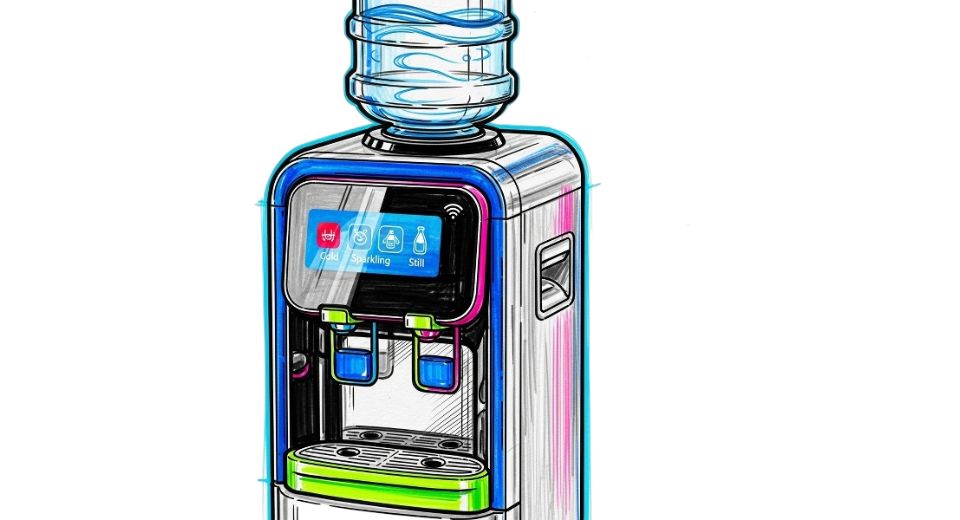
Aug 05, 2025

The most recent report published by Metastat Insight is an excursion into the terrain of the Global Smart Water Cooler Market, providing an in-depth look into its present trajectory and industry reaction. This research, better than a basic overview, grapples with the trajectory of manufacturers, change in consumer patterns, and the nuanced dance between technology and hydration solutions. Whereas traditional dispensers are old-fashioned, smart water coolers now cross over with connectivity, sustainability, and convenience trends, transforming them into a silent but powerful force in today's infrastructure residential and commercial. As the world's organizations reassess their buildings and amenities, even the humble water cooler has been reborn.
No longer does it quietly occupy the corner as an inert appliance. Rather, it speaks up actively, adapts, and learns from its environment. Whether installed in offices, healthcare settings, hospitality environments, or residences, smart water coolers today reflect a broader intent to enhance resource management and elevate the user experience. This transformation is not abrupt; rather, it has unfolded through an ongoing blend of software development, design ingenuity, and consumer feedback. One of the standout features embedded within modern water coolers is the seamless integration with digital ecosystems. Touchless use, temperature control on the fly, and consumption monitoring are no longer exclusive to premium models; they've started to set the standard for expectations in different markets.
With lifestyles leaning toward personalization and automation, manufacturers are discovering innovative ways to live up to these expectations through water cooling technology. This soft turn indicates a greater trend with networked appliances, whereby feedback loops not merely advantage the user but also enable maintenance effectiveness and energy stewardship. The cultural dynamic with drinking water differs on different continents, yet concerns underlying are surprisingly congruent. Cleanliness, flavour, and access still serve as baselines for consumer expectations. The Global Smart Water Cooler Market responds to this collective awareness, stitching through various regional standards and infrastructure conditions.
Firms operating in this space are responding with surprisingly agile adaptations of their products. While local regulations continue to control filtration and purification processes, there is additionally a keen emphasis on easy-to-use interfaces and mobile connectivity, which resonate with a younger, more tech-savvy clientele. What distinguishes this market from its more conventional counterpart is the dynamic interplay between hardware and data. Intelligent water coolers not only provide insights into water quality and amount, but also into usage patterns. For the corporate office environment, that translates into the integration of hydration efforts with employee wellness programs. For public water installations, it amounts to guaranteeing consistency and accountability of water distribution.
The value proposition, as such, goes a long way past temperature fluctuation or ergonomic form; it extends to behavioural information, predictive maintenance, and ecological metrics. Global Smart Water Cooler Market vendors are not working in silos. Partnerships with software vendors, IoT platforms, and even with green energy consultants are becoming more prevalent. Such collaborations enable the creation of functionality beyond the dispensation of water some coolers are now nodes in a broader energy or wellness system. For example, syncing hydration information with workplace wellness apps is only one illustration of how the category is broadening its mission. The ecosystem is growing richer and more nuanced, not through any single technological advance, but through a soft accretion of complementary innovations.
Consumer behaviour, especially in urban areas, is dictating how smart water coolers are being marketed and sold. As interest in limiting single-use plastic grows, the popularity of filtered, cooled, and convenient water cannot be exaggerated. But even the marketing story hardly ever rides purely on sustainability alone. Rather, it is positioned within a more general lifestyle upgrade and smart living context. This is a delicate shifting of grounds which enables producers to ride hopes of health, efficiency, and simplicity, issues widely popular in today's consumer culture. Distribution plans have also adapted.
From direct-to-consumer designs to bundled facility agreements, the channels to market have expanded. Where previous designs for water coolers were seen predominantly through a logistical prism install and forget the next generation demands a more interactive relationship. Regular software tweaks, usage statistics, and system resets are becoming part of the accepted service package. Consequently, the vendors are no longer merely offering a product; they are making long-term commitments that require responsiveness and flexibility.
Even with the sophistication of technology, the human experience is still at the core of the smart water cooler's identity. The sensory touch of a dispenser, the simplicity of a digital display, and even the background hum while operating all add to the way people feel value. Businesses that invest in the finer points of sensory detail tend to be well-placed to retain customer loyalty. It's a delicate game, one that mixes functional dependability with visual pleasure. In pointing to the research reported through the most recent publication of Metastat Insight, we see that the Global Smart Water Cooler Market is not simply adapting to modern needs it is powerfully shaping the measures by which we define hydration, convenience, and sustainability.
It is a space endowed with design, data, and consumer knowledge, and it continues to develop through successive incremental innovations and careful convergence. What was previously regarded as a secondary amenity is increasingly becoming a fundamental interface in networked living.
Drop us an email at:
Call us on:
+1 214 613 5758
+91 73850 57479